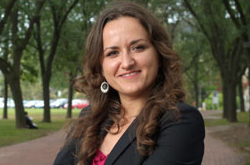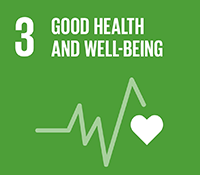
Improving Clean Water
Lang BComm alumnus and entrepreneur Matt Wittek's company Cupanion helps provide clean water to those in need.
Learn more The recent events of the COVID-19 pandemic have catapulted organizations into unprecedented circumstances and unforeseen transitions to virtual work environments. Many organizations responded to these rapid and drastic changes by creating opportunities for their employees to work from home. This shift from a traditional workplace to online, digital team environments presents unanswered questions in understanding what work might look like in the future.
The recent events of the COVID-19 pandemic have catapulted organizations into unprecedented circumstances and unforeseen transitions to virtual work environments. Many organizations responded to these rapid and drastic changes by creating opportunities for their employees to work from home. This shift from a traditional workplace to online, digital team environments presents unanswered questions in understanding what work might look like in the future. Professor Agnes Zdaniuk, an associate professor in leadership and organizational management with the Gordon S. Lang School of Business and Economics has an acute interest in leadership relationships, and how the COVID-19 pandemic might impact organizational relationships and leadership moving forward. In particular, what virtual work environments mean for workplace connections and relationships. With the newfound loss of in-person connection and the contextual elements of communications, how may the shift to online work influence employee’s spectrum of workplace relationships?

Such questions relate to a stream of Professor Zdaniuk’s diverse research portfolio. One such area of research explores how different work environments influence employee’s perceptions of mistreatment at work. Recently, Professor Zdaniuk found that employees working within an in-person environment demonstrated more anti-social and revengeful behaviours than those who worked virtually. Those with who worked in virtual environments also had greater forgiveness of conflict, indicating how one’s work environment may influence their perception of mistreatment at work. These initial conclusions present a better understanding of how virtual work environments may provide more effective methods of conflict resolution and forgiveness. Paired with the understanding that virtual work may become the new normal, these findings may lead to greater support for organizational adoption of work from home strategies.
“As people get back to their workplaces, I encourage organizations to systematically review what jobs or aspects of jobs enabled employees to thrive virtually, and consider maintaining a work from home policy when it works well.” says Zdaniuk.
Virtual work environments also alter traditional leader-follower relationships and the ways in which these relationships are recognized. Zdaniuk’s current research on status-levelling and its influence on leadership explore how workplace status is understood at a cultural level and how it may influence leadership relationships.
In traditional work environments, the cultural indications of status appear obvious, through the assignment of the keystone corner office or a prime parking spot. However, these visual cues become removed in the transition to an online workplace.
“What remains may be the opportunity to create more egalitarian workplaces, which may be further enhanced by using first names rather than professional titles during virtual correspondence,” says Zdaniuk.
For now, while organizations and their employees continue to juggle a new normal and awareness for what their business may look like in the future, researchers contemplate new areas of study. As shared by Professor Zdaniuk, the COVID-19 pandemic has unveiled novel research questions, presenting important new opportunities in uncovering how virtual work environments may alter traditional workplace relationships.
Learn more about Lang's MA in Leadership program


Lang BComm alumnus and entrepreneur Matt Wittek's company Cupanion helps provide clean water to those in need.
Learn more
Discover more stories of how the Lang School is helping achieve SDG#3: Good Health and Well-being
Learn more